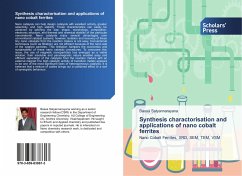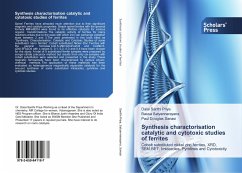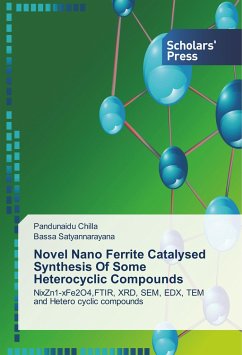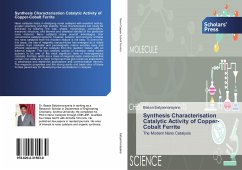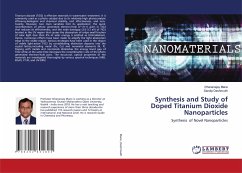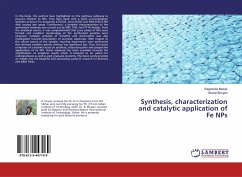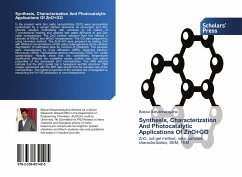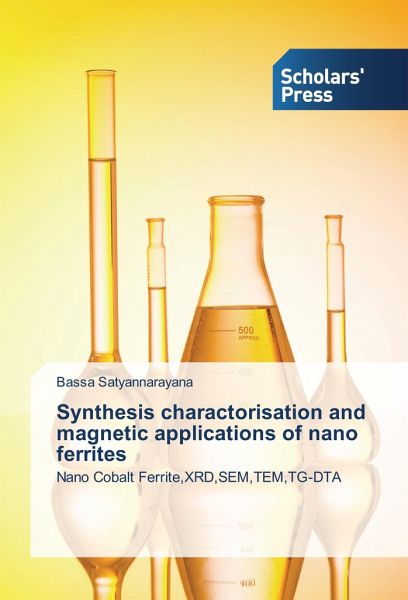
Synthesis charactorisation and magnetic applications of nano ferrites
Nano Cobalt Ferrite,XRD,SEM,TEM,TG-DTA
Versandkostenfrei!
Versandfertig in 1-2 Wochen
39,99 €
inkl. MwSt.

PAYBACK Punkte
20 °P sammeln!
Nano catalysis can help design catalysts with excellent activity, greater selectivity, and high stability. These characteristics can easily be achieved by tailoring the size, shape, morphology, composition, electronic structure, and thermal and chemical stability of the particular nanomaterial. Nano catalysts enjoy several advantages over conventional catalyst systems; however, isolation and recovery of these tiny nano catalysts from the reaction mixture is not easy. Conventional techniques (such as filtration) are not efficient because of the nano size of the catalyst particles. This limitati...
Nano catalysis can help design catalysts with excellent activity, greater selectivity, and high stability. These characteristics can easily be achieved by tailoring the size, shape, morphology, composition, electronic structure, and thermal and chemical stability of the particular nanomaterial. Nano catalysts enjoy several advantages over conventional catalyst systems; however, isolation and recovery of these tiny nano catalysts from the reaction mixture is not easy. Conventional techniques (such as filtration) are not efficient because of the nano size of the catalyst particles. This limitation hampers the economics and sustainability of these nano catalytic procedures. To overcome this issue, the use of magnetic nanoparticles has emerged as a viable solution; their insoluble and paramagnetic nature enables easy and efficient separation of the catalysts from the reaction mixture with an external magnet.



